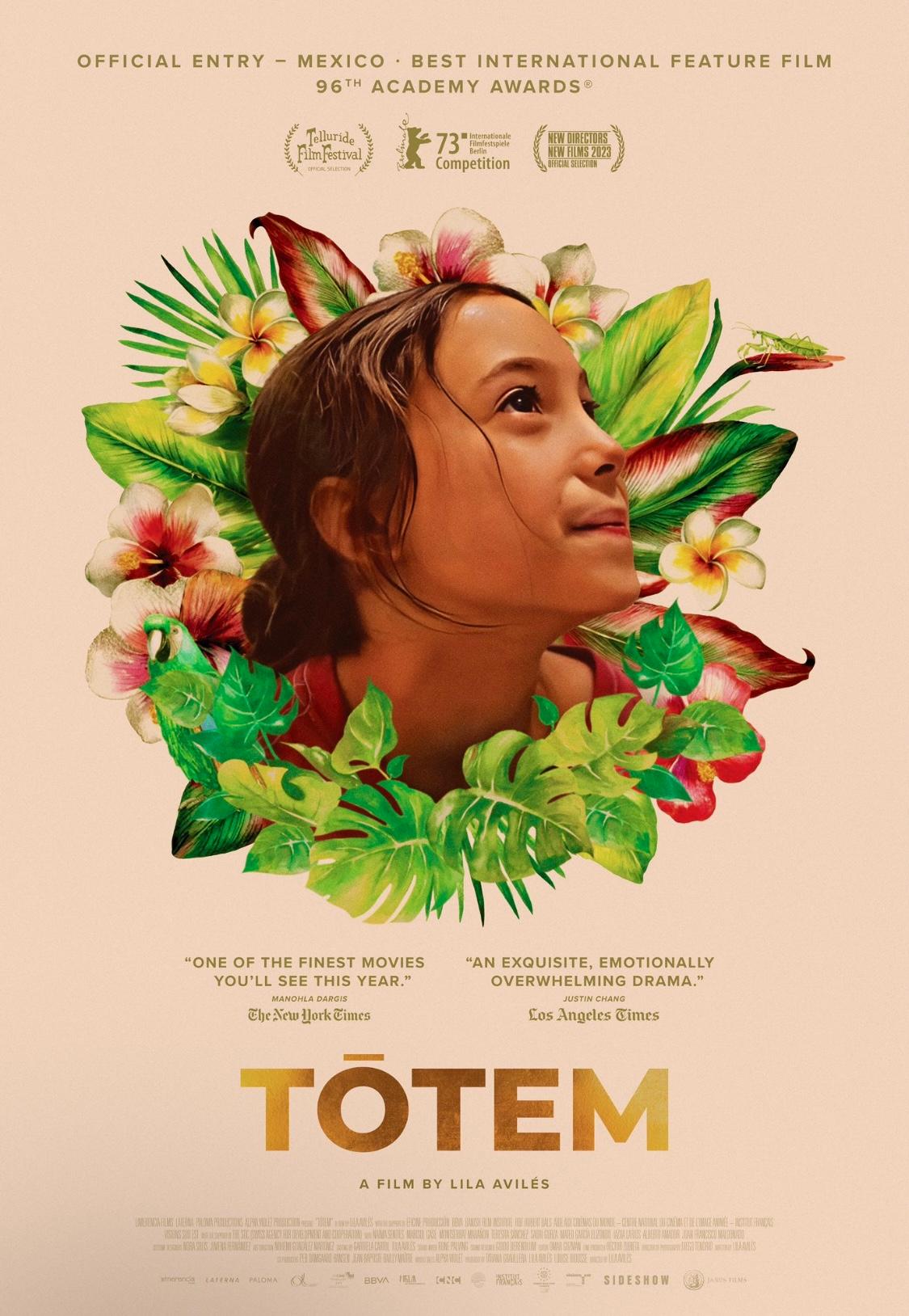There is a moment in our childhoods when we find out our lives are finite. Be it the death of a grandparent, family friend, or even a pet, we look at things differently once we know that we will not be here forever. That look of acknowledgment is both heartbreaking and masterfully shown in the final moments of Lila Avilés’ Tótem. Tótem, a film about a celebration of life, also shows the audience the death of innocence through the eyes of Sol.

Tótem begins with Sol, played beautifully by Naíma Sentíes, and her mother preparing to go to a party for her dad. The pair are rehearsing a routine that they will perform and the lightheartedness of these scene feels like we are just watching a parent and their child hanging out. As the audience we are excited about their day and ride with them as they drive her grandfather’s house for the party.
What Lila Avilés masterfully does in this movie is give us a fly-on-a-wall perspective of the events as they unfold. The audience sits back and watches as the preparations for the party advance and hit some snags along the way. Through the eyes of Sol we see how everything is prepared with love and maybe more love than before.
Watching these scenes sent me back to my childhood of arriving at family parties early and trying to keep myself busy while everyone was cooking or setting up decorations. The party that the family is preparing for is for Sol’s father, Tonatiuh, played by Mateo García Elizondo, who is terminally ill and is being taken care of by his sisters. Sol keeps asking to see her father but is told that he is resting and needs his strength for later that night.
As a parent you sympathize with young Sol wanting to be with her father. You can understand the importance of that quality time that she wants with him. This young girl just wants to be with her dad.
As a member of the audience the preparation for the party starts to feel different. The conversations had between the adults make you wonder what kind of party this is going to be. We hear the burdens that are on the sisters and how they are doing their best just to keep their sanity.
The third act in Tótem is when it all starts setting in. As much as the audience is enjoying the party for Tonatiuh, we start to realize that this may be his last party. Avilés takes us all of this journey of life that starts at the beginning of the day and nearly ends at the dawn of the next. It is at this moment, like Sol, when our lives change.
Final Thoughts: Tótem is a beautiful movie about the celebration of life and the death of childhood innocence. As the audience, we are a fly on the wall as we watch this family prepare for a party for Tonatiuh, Sol’s dad. Being in the household and seeing all the love and care feels intrusive at first but as the movie plays out we are pulled into the family’s struggle and ride this emotional roller coaster with them. TóTem transforms the viewer by the end of the movie and may have you looking at life differently.
Kid-Friendly: While the concept of death and dying might be too much for little ones this movie does make a good point to appreciate those around you. Being that the young girl, Sol, is the main character of the movie, some kids might be able to relate to her need for attention and wanting to be with her father.
Violence: There is no violence in the movie.
In a bustling Mexican household, seven-year-old Sol is swept up in a whirlwind of preparations for the birthday party for her father, Tona, led by her mother, aunts and other relatives. As the day goes on, building to an event both anticipated and dreaded, Sol begins to understand the gravity of the celebration this year and watches as her family does the same. This poignant and emotionally expansive film from Lila Avilés (The Chambermaid) cements her skill at directing dynamic ensemble performances in her stunning sophomore effort.
